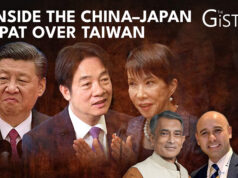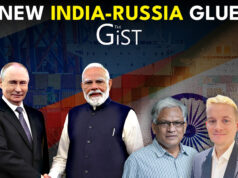Four years since the Taliban returned to power in Kabul, Afghanistan’s foreign minister is in Delhi, a move which Rakesh Sood, former ambassador to that country, described as pragmatic.
“This is a step forward … There were signs of this happening right from the beginning of this year. Initially we closed our embassy because we had not established any contacts with the Taliban. In fact, they had reached out to us (but India did not engage with them),” Sood, who has also served in Islamabad, told StratNews Global on The Gist.
He said after the Taliban established their international office in Doha, Qatar in 2013, the United States, Russia, Germany, Norway, Turkey, Iran, Saudi Arabia, UAE, started engaging with them, particularly with Mullah Baradar, who was then based there. Baradar is currently Deputy Prime Minister of Afghanistan.
“Somehow, we decided to not engage with them (the Taliban) and which is why when the Taliban takeover happened in 2021, we felt insecure and obviously had to close down the embassy within 48 hours and evacuate all the Indians from there,” Ambassador Sood said.
“However, I’m glad that people started thinking a little more pragmatically. And after a year or so, we then opened a technical mission. We did not send an ambassador, but we had a technical mission because we continued to provide humanitarian assistance,” he said.
During his first face-to-face bilateral meeting in New Delhi with Muttaqi, External Affairs Minister Jaishankar said India will re-open its embassy in Kabul and underscored the “sovereignty and territorial integrity” of Afghanistan.
A Lot That’s Different
According to Sood, there is a “lot” that is “very different” from the Taliban which ruled Afghanistan during the period 1996-2001 to the Taliban of today, which has now got full control of the country.
“The first time the Taliban came to power, we certainly did not engage with them because the Taliban also took a hostile attitude towards us, and we saw that. And at the same time, the Taliban did not have full control over their country.
“There was a Northern Alliance, which continued to resist the takeover by the Taliban across the entire country. And although they were getting squeezed, there is no doubt about it, but still the Northern Alliance kept up a fight,” he said, adding at that time Taliban was backed by the Pakistani military.
“In 1996, the Taliban was backed by the Pakistani military. So, there was a lot of difference. We, along with Russia and Iran were providing active assistance to the Northern Alliance that was resisting the Taliban. Yes. So, the relationship with the Taliban was quite different.”
The Taliban today has a “hostile relationship” with Pakistan and it has committed to India that they will not allow cross-border terrorism. Afghanistan was one of the first countries in the region to condemn the Pahalgam terror attacks that took place in April 2025.
“The Taliban government that came to power in 2021 has been at pains to tell us that they are not engaged in any terrorist activity, although there are a number of internationally proscribed terrorist groups that they seem to host. But they have repeatedly assured us that they will not permit any of these to undertake any adverse actions in India,” he said.
“So there is a difference, ideologically speaking, with the Taliban that is now there as compared to the Taliban that was earlier there, which was completely dependent on Pakistan. Today’s Taliban is not that dependent on Pakistan.”
Tune in for the interview now running on StratNews Global’s YouTube channel.




